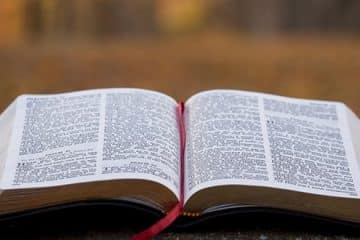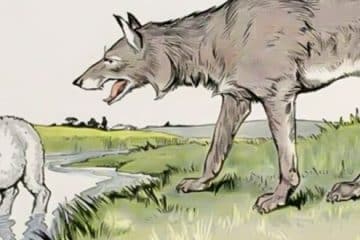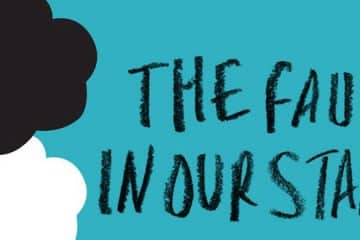
- Does hope help to survive a life crisis?
- Are there any positive aspects in despair for a person?
Hope from the perspective of morality
Hope (in the philosophy context) is called the existential of human existence. Historical development has led to the emergence of many concepts and connotations associated with the word “hope”. Hope (as well as love, sadness, despair, etc.) has a subject – a person who experiences this state. Hope is a deep, complex emotion. And the degree of depth of such a feeling depends on the intellectual development and personality traits of the subject.
Alexander Dumas, the father once said a wonderful phrase: “The wisdom of life lies in two words – expectation and hope”. A person spends his or her life waiting for happiness, joy, material well-being. However, at the same time, there is a danger of losing touch with the reality, plunging into dreams of the future. The image of hope is also revealed in “Scarlet Sails” by Alexandr Green: Assol’s life turned into an expectation. However, readers rejoice at the happy ending of this story. This is not always the case in real life.
The other side of hope
Hope (as opposed to despair) has acquired some positive associations. Hope is one of the key virtues, if we look at it through the lens of christianity. According to John of Kronstadt, hope is the fruit of faith. The author compares the birth of hope in the human soul with the growth of plants from seeds. Hope is of “supernatural” character, because it accompanies people throughout their lives. For whom does a person hope in a difficult situation? The christianity’s answer is: to God. But in real life, hope is easy to compare with the Moon, which has two sides: light and dark.
Hope is a dangerous feeling that evokes a false sense of security. So, a person trusts in God, forgetting about the strength of his or her own personality. The expectation of a miracle sometimes lasts a lifetime, but the desired moment never comes. Hope often leads to inertia and passivity of a person who does nothing and just waits for a brighter future. So, people do not always understand that hope is just a sort of a charm that inspires to build the future with their own hands. When a miracle does not come, people fall into despair: it is not for nothing that the phrase “last hope” exists.
Despair as a moral category
Despair, similar to hope, is one of the key existentials of human existence. A person who loses everything in life often falls into a state of despair and resignation. A broken heart, unfulfilled expectations, the loss of loved ones – such distressing events make a person plunge into an abyss of complex and contradictory emotions. And despair is the exact kind of emotion. Ivan Turgenev in “Fathers and Sons” demonstrates that such a feeling is the dying state of the human soul.
In this context, it is worth taking a closer look at the figure of Bazarov. Turgenev’s hero falls in love with a girl, but takes a beating. The despair that seized the man’s heart changed Bazarov’s life. So, the hero no longer does the usual things, thinking only of unhappy love. As a result, life for Eugene loses its value. Bazarov is a doctor, attention to medical duties is the responsibility of a Turgenev’s character. However, having lost his vigilance, Eugene forgets about his commitment. During the operation, the hero contracts typhus, which was an incurable disease in those years. The inevitability of death forces Bazarov to reconsider his life principles and foundations. Former beliefs now seem ridiculous to the hero. It is self-flagellation, self-condemnation and despair that kills Eugene.
Despair in the life of a creative person
Literature doesn’t usually indulge despair with positive reviews. Let’s imagine that despair is a living being. What will be his portrait? A black face, sad eyes, an awkward gait, an inward-facing look — that would be despair. This is a creature that deserves some compassion: people do not feel the benefit of such an emotion. However, this portrait can be versatile. Don’t forget that creative people are a special category of society. Despair is often more fruitful for creativity than positive feelings like hope.
In this context, it is worth recalling the French philosopher and essayist Emile Cioran. This person adheres to such a thought: the night is so black that it obscures the future. Despair goes hand in hand with “friends”: fatigue, melancholy, nostalgia, and depression. But let’s stop and think: how many works of art resulted from experiencing joy and happiness? For skeptical philosophers, happiness is just an abstract construct. A person feels happiness for a few minutes or seconds, whereas despair, nostalgia, sadness are states characterized by a long-term nature. The creative person feeds on feelings that are seen as negative. A broken heart gives rise to extraordinary works about love, suffering – about kindness, despair – about a bright future.
He who has never hoped cannot despair
This is a Bernard Shaw’s idea. However, there is also an alternative opinion of the writer Mila Knox. The author takes the position that sometimes we all lack hope and returns this feeling to our lives. Philosophers and writers literally scream about the relationship between hope and despair. Despair sometimes breeds hope, and hope, in turn, is the substrate on which despair takes root. A person who experiences extreme despair, survives because he hopes for a happy outcome.
A striking example of the relationship between hope and despair is the story of the black tulip from the eponymous novel by Alexandre Dumas. The author tells about Cornelius van Baerle, a hero who has dreamed of growing a black tulip for seven years. Finally, the hero grows the cherished onion, but loses his “invention”. The protagonist’s despair of Dumas’s novel is born of hope – from the expectation of growing the coveted plant.
Let’s go back to Mila Knox and her novel “Macabre”. The main character, Theodore Levianu, began playing with Death. The goal of the young man is to save the family. He wants to see his relatives. Problems on the way to a dream make him understand: the dead cannot be returned. Theodore’s hope is replaced by despair. Thus, the writer demonstrates the connection between two opposite existentials – hope and despair. Philosophers call hope a wasteful state. Empty and destructive, fruitless expectations often ruin people. This is the core thought of authors like Mila Knox. Hope is an emotion that plays roulette with a person. In this game there is a chance to win big and completely change your life. However, you can lose: then you have to get back on your feet.






Hope is the only thing that makes us human in very difficult times, it is what unites us and makes us closer. It has helped me many times on my life’s journey. When it seems that something will not happen for sure, it is better to feel hope than despair. It is better to feel positive, but I understand the attitude of despair that replaces hope in some situations, so in each case everything is individual.
At one point it became clear to me that despair is very difficult to overcome. This is what presses and oppresses you, why is it so? I am still looking for an answer to this question, indeed, hope in my heart helps to some extent to come to terms with some things that do not allow me to live peacefully, but some anxiety continues to remain. That’s why I still don’t have an answer to this question.